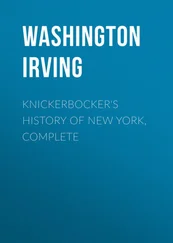That first evening, as a special treat to the staff—and because there were so few guests, and most of them had gone to bed, to get warm—the band played late. My father and mother, and the other help, were invited to dance for an hour or more. My mother always remembered that the ballroom chandelier was broken—it blinked dimly; uneven spots of colour dappled the dance floor, which looked so soft and glossy in the ailing light that the floor appeared to have the texture of a candle.
“I’m glad someone I know is here,” my mother whispered to my father, who had rather formally asked her to dance and danced with her very stiffly.
“But you don’t know me,” Father said.
“I said that,” Father told us, “so that your mother would shrug again.” And when she shrugged, thinking him impossibly difficult to talk to—and perhaps superior—my father was convinced that his attraction to her was not a fluke.
“But I want you to know me,” he told her, “and I want to know you.”
(“Yuck,” Franny always said, at this point in the story.)
The sound of an engine was drowning out the band, and many of the dancers left the floor to see what the commotion was. My mother was grateful for the interruption: she couldn’t think of what to say to Father. They walked, not holding hands, to the porch that faced the docks; they saw, under the dock lights swaying on the overhead wires, a lobster boat putting out to sea. The boat had just deposited on the dock a dark motorcycle, which was now roaring—revving itself, perhaps to free its tubes and pipes of the damp salt air. Its rider seemed intent on getting the noise right before he put the machine in gear. The motorcycle had a sidecar attached, and in it sat a dark figure, hulking and still, like a man made awkward by too many clothes.
“It’s Freud,” someone on the staff said. And other, older members of the staff cried out, “Yes! It’s Freud! It’s Freud and State o’Maine!”
My mother and father both thought that “State o’Maine” was the name of the motorcycle. But then the band stopped playing, seeing its audience was gone, and some of the band members, too, joined the dancers on the porch.
“Freud!” people yelled.
My father always told us he was amused to imagine that the Freud would any moment motor over beneath the porch and, in the high-strung lights lining the perfect gravel driveway, introduce himself to the staff. So here comes Sigmund Freud, Father thought: he was falling in love, so anything was possible.
But this was not that Freud, of course; it was the year when that Freud died. This Freud was a Viennese Jew with a limp and an unpronounceable name, who in the summers since he had been working at the Arbuthnot {since 1933, when he’d left his native Austria) had earned the name Freud for his abilities to soothe the distress of the staff and guests alike; he was an entertainer, and since he came from Vienna and was a Jew, “Freud” seemed only natural to some of the odd, foreign wits at the Arbuthnot-by-the-Sea. The name seemed especially appropriate when, in 1937, Freud arrived for the summer on a new Indian motorcycle with a sidecar he’d made all by himself.
“Who gets to ride behind and who gets to ride in the sidecar, Freud?” the working girls at the hotel teased him—because he was so frightfully scarred and ugly with pockmarks (“holes from the boils!” he called them) that no woman would ever love him.
“Nobody rides with me but State o’Maine,” Freud said, and he unsnapped the canvas canopy from the sidecar. In the sidecar sat a bear, black as exhaust, thicker with muscles than Iowa Bob, warier than any stray dog. Freud had retrieved this bear from a logging camp in the north of the state and had convinced the management of the Arbuthnot that he could train the beast to entertain the guests. Freud, when he emigrated from Austria, had arrived in Boothbay Harbor, by boat, from New York, with two job descriptions in capital letters on his work papers: EXPERIENCE AS ANIMAL TRAINER AND KEEPER; GOOD MECHANICAL APTITUDE. There being no animals available, he fixed the vehicles at the Arbuthnot and properly put them to rest for the non-tourist months, when he travelled to the logging camps and the paper mills as a mechanic.
All that time, he later told my father, he’d been looking for a bear. Bears, Freud said, were where the money was.
When my father saw the man dismount from the motorcycle under the ballroom porch, he wondered at the cheers from the veteran members of the staff; when Freud helped the figure from the sidecar, my mother’s first thought was that the passenger was an old, old woman—the motorcyclist’s mother, perhaps (a stout woman wrapped in a dark blanket).
“State o’Maine!” yelled someone in the band, and blew his horn.
My mother and father saw the bear begin to dance. He danced away from Freud on his hind legs; he dropped to all fours and did a short lap or two around the motorcycle. Freud stood on the motorcycle and clapped. The bear called State o’Maine began to clap, too. When my mother felt my father take her hand into his—they were not clapping—she did not resist him; she gave back equal pressure, both of them never taking their eyes from the bulky bear performing below them, and my mother thought: I am nineteen and my life is just beginning.
“You felt that, really ?” Franny always asked.
“Everything is relative,” Mother would say. “But that’s what I felt, yes. I felt my life start .”
“Holy cow,” said Frank.
“Was it me or the bear you liked?” Father asked.
“Don’t be silly,” Mother said. “It was the whole thing. It was the start of my life.”
And that line had the same fix-me-to-the-spot quality of Father’s line about the bear (“He was too old to be a bear anymore”). I felt rooted to the story when my mother said that this was the start of her life; it was as if I could see Mother’s life, like the motorcycle, after long revving, finally chunk into gear and lurch forward.
And what must my father have imagined, reaching for her hand just because a bear was brought by a lobster boat into his life?
“I knew it would be my bear,” Father told us. “I don’t know how.” And perhaps it was this knowledge—that he saw something that would be his—that made him reach for my mother, too.
You can see why we children asked so many questions. It is a vague story, the kind parents prefer to tell.
That first night they saw Freud and his bear, my father and mother did not even kiss. When the band broke up, and the help retired to the male and female dormitories—the slightly less elegant buildings separate from the main hotel—my father and mother went down to the docks and watched the water. If they talked, they never told us children what they said. There must have been a few classy sailboats there, and even the private piers in Maine were sure to have a lobster boat or two moored off them. There was probably a dinghy, and my father suggested borrowing it for a short row; my mother probably refused. Fort Popham was a ruin, then, and not the tourist attraction it is today; but if there were any lights on the Fort Popham shore, they would have been visible from the Arbuthnot-by-the-Sea. Also, the broad mouth of the Kennebec River, at Bay Point, had a bell buoy and a light, and there might have been a lighthouse on Stage Island as long ago as 1939—my father never remembered.
But generally, in those days, it would have been a dark coast, so that when the white sloop sailed toward them—out of Boston, or New York: out of the southwest and civilization, anyway—my mother and father must have seen it very clearly and watched it undistracted for the time it took to come alongside the dock. My father caught the mooring line; he always told us he was at the point of panic about what to do with the rope—tie it up to something or tug it—when the man in the white dinner jacket, black slacks, and black dress shoes stepped easily off the deck and climbed the ladder up to the dock and took the rope from my father’s hands. Effortlessly, the man guided the sloop past the end of the dock before he threw the rope back on board. “You’re free!” he called to the boat, then. My mother and father claimed they saw no sailors on board, but the sloop slipped away, back to the sea—its yellow lights leaving like sinking glass—and the man in the dinner jacket turned to my father and said, “Thanks for the hand. Are you new here?”
Читать дальше












